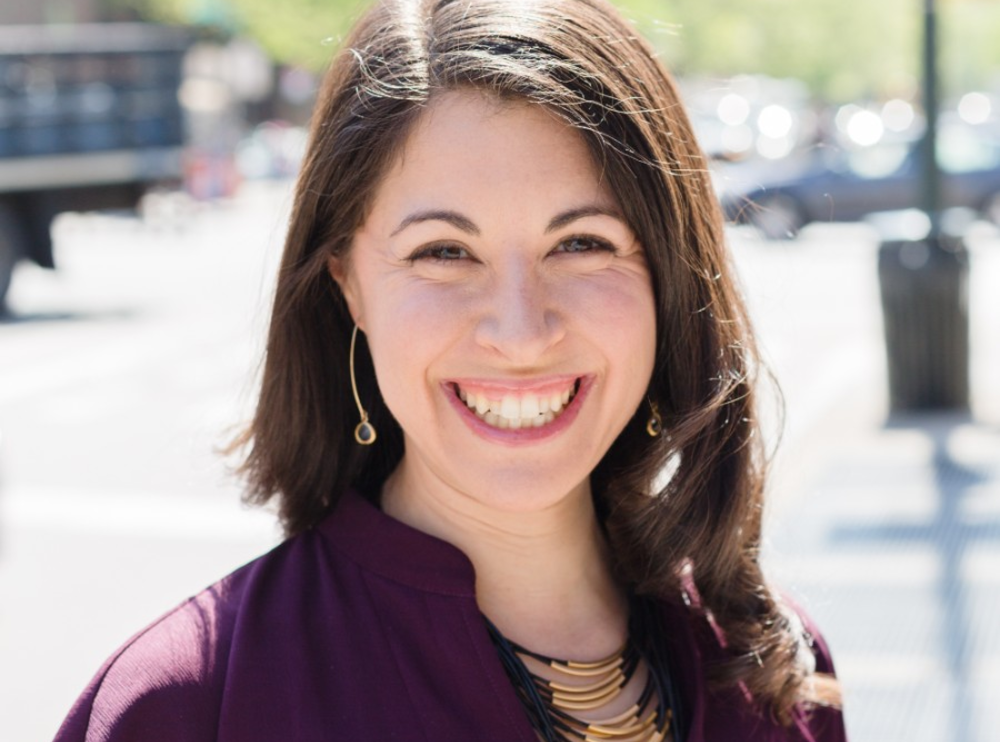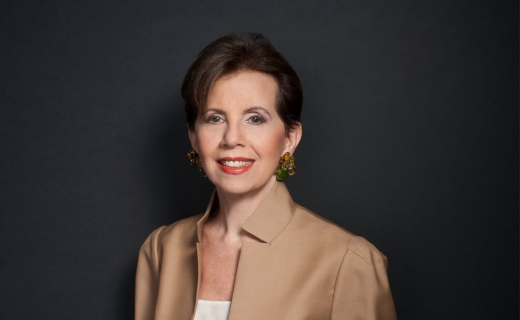Your Daily Phil: Rabbi Shira Koch Epstein reflects on rabbinic innovation
Good Thursday morning!
Jeff Bezos announced earlier this week that he is stepping down as CEO from Amazon, the $1.7 trillion “everything store” that he founded in 1994, but that he will be “pivoting to philanthropy” even as he remains involved with Amazon.
“The translation of business acumen to philanthropy is not automatic, but there are very important business principles that you can apply to philanthropy if you apply them intelligently,” Andres Spokoiny, who leads the Jewish Funders Network (JFN), told eJewishPhilanthropy. Bezos has taken something successful and grown it, for example, and he has patience, as well. “Jeff Bezos waited for six or seven years to make a profit,” Spokoiny said.
Rabbi by design
A rabbi focused on innovation takes a pause to evaluate the work


Shira Koch Epstein
Holy work: Shira Koch Epstein is the rabbi’s rabbi. She heads the Fellowship for Rabbinic Entrepreneurs, a year-long program being developed at the Office of Innovation at Hillel: The Foundation for Jewish Campus Life. There, she’s trained dozens of students and early-career clergy who want to create something new — whether that’s an entire community, or a major new project in an existing one. When the pandemic hit, she started the Rabbinic re(Design) Lab to help Jewish clergy learn how to reach congregants they couldn’t see face-to-face. eJewishPhilanthropy’s Helen Chernikoff interviewed her about why the Jewish world is calling out for rabbinic innovation in the first place, and how COVID-19 made that call even more urgent.
The people’s house: “What we’ve built often doesn’t keep up with where the people are,” Epstein said. Even in 2013, 20% of American Jews did not consider synagogue attendance part of their identity, according to the Pew Research Center’s Portrait of Jewish Americans. “The synagogue is a ‘beit knesset’ in Hebrew — a house of gathering,” Epstein said. “It’s not necessarily a house of prayer. If people are not gathering there to pray, we should figure out what they need.”
Reaching out: One rabbi who went through the rabbinic entrepreneur program, Greg Alexander, leads Temple Israel in Cape Town, South Africa. He used the fellowship to build small “think tanks” made up of the people who didn’t want to come to synagogue. They talk about what they would want instead, and he’s trying to create that with them. Rabbi Shir Yaakov-Feit started Kol Hai, a synagogue in New York State’s Hudson Valley that does much of its programming, such as a “forest Hebrew school,” outdoors. Yaakov-Feit’s community has obvious advantages when it comes to serving congregants during a pandemic, but coronavirus taught clergy that they all had to start thinking like entrepreneurs. “Rabbis had to ask themselves how they were going to be able to talk to people if they weren’t going to show up on Friday and Saturday,” she said. “Actually, we’ve always needed to do that.”
op-ed
Professional development as a catalyst for community change


M2: The Institute for Experiential Jewish Education.
Clare Goldwater and Tamara Rebick share learnings from a new professional development partnership in a new opinion piece for eJP.
Background: The product of a partnership between M2: The Institute for Experiential Education and Federation CJA, Montreal is the first site for this model of community change. We believe the model has enormous potential for other cities, and we want to share what we have learnt in the past year about bringing together diverse groups of professional educators (as widely defined as possible) to catalyze long-term community change and growth.
Challenge: Launching a program in the midst of a global pandemic has demonstrated the importance of strong networks and flexibility. The first seminar took place before the crisis hit, but it reached us soon afterwards, before we could implement new ideas or build momentum.Nevertheless, it quickly became clear that even the budding relationships between Fellows could be helpful and motivating. Fellows whose jobs were at risk found support and job-hunting assistance through the group, those whose constituents were suffering found it useful to share their experiences and suggestions for how to address the crisis, and everyone realized that being part of a network outside their specific workplace provided unexpected moral and emotional support that has only strengthened over time.
Program: The program has clearly illustrated that speaking a shared language of education promotes multiplicity and diversity, while speaking different languages leads to chaos. One of the pillars of the Passport to Jewish Life Fellowship is the focus on acquiring and using a shared language for program design, values clarification, and educational growth, based on M2’s approach. The very diversity of the educators in the program makes it critical that they speak a shared language so that they can communicate, collaborate, and build new things together, all while letting their differences shine.
Outcome: There is an interesting paradox at play; though we are interested in promoting a shared language, this is not to blur participants’ differences or minimize them, but to highlight, recognize, and celebrate them. And then, using the same terminology and through our deep mutual understanding of each other, we work together to imagine new directions and build innovative possibilities for collaboration. While it has been a full year since the group gathered in person, the bonds have solidified and trust, mutual respect, and admiration have been nurtured.
Worthy Reads
Sunrise, Sunset: Rachel B. Gross, the author of a new book, Beyond the Synagogue: Jewish Nostalgia as Religious Practice, opines that Ashkenazi American Jews’ nostalgia for their Eastern European roots and early years in this country can help connect them to each other and their heritage, despite elite contempt for the emotion. This focus on the past might make Jews who are converts or have roots in other parts of the world feel excluded, she notes. [Religion&Politics]
NYC Priorities: Arts leaders worried that donors would choose to support health-related causes over their institutions during the pandemic, writes Mike Scutari. Yet the New York Community Trust’s COVID-19 Response Fund has, as of January, directed 40% of its grants to arts and culture organizations, according to a new report from the trust, “Resilience & Resolve.” [InsidePhilanthropy]
What’s Next: Ryan Schlegel and Anna Koob argue that philanthropy responded to COVID-19 at an unprecedented scale which included a new focus on marginalized people. Now, the big questions are about whether philanthropists will maintain that focus, and whether they will change how they make grants in addition to the amount of money they give away. [NCRP]
Beam Me Up: Lorelai Laird, a woman who converted to Judaism last summer who is also a Trekkie, says that her new faith envisions a world run by people who try to do what’s right, even when it’s hard — just like Captain Kirk and Dr. Spock. [StarTrek.com]
Community Comms
Be featured: Email us to inform the eJP readership of your upcoming event, job opening, or other communication.
Around the Web
University of California Berkeley’s Jewish student co-op is celebrating the big 4-0… London’s Institute for Jewish Policy Research (JPR) has released “Jewish community income: How is it being affected by the pandemic?”… adding to the discussion eJP covered concerning the relationship between The Jewish Agency and the Christian Evangelical movement, Richard Wexler adds historical perspective…. Kelly Taxter, a curator at the Jewish Museum, has been named director of the Parrish Art Museum… The Gender Equity in Hiring Project has set a date of Feb. 11 to start sharing what they’ve learned from their crowdsourced salary experiment, co-founder Rebecca Sirbu said…
Pic of the Day


Staff at a food distribution organization set up produce from Urban Adamah, an educational farm in the Bay Area.
Birthdays


Concordia
Attorney and philanthropist, donor of the Adrienne Arsht Center for the Performing Arts of Miami-Dade County, Adrienne Arsht turns 79..
Award-winning journalist and former State Department spokesman, Bernard Kalb turns 99… Actor best known for his work as Herman “Hesh” Rabkin on HBO’s “The Sopranos,” Jerry Adler turns 92… Stowe, Vermont resident, Barbara Gould Stern turns 87… Co-founder and Chair of SAGE Publications, she was international president of B’nai B’rith Girls at the age of 19, Sara Miller McCune turns 80… Patrick B. Leek turns 68… Senior counsel at the global law firm Dentons, Evan Wolfson turns 64… Director of English language programming at Herzog College in Alon Shvut, Israel, Shalom Berger turns 61… Actress, best known for her award-winning role as Private Vasquez in the 1986 science fiction action film Aliens, Jenette Elise Goldstein turns 61… Member of the State Senate of Maryland since 2013, Brian J. Feldman turns 60…
Former Mayor of Anchorage, Alaska, Ethan Avram Berkowitz turns 59… Talent agent and executive chairman of Endeavor, Patrick Whitesell turns 56… Former kickboxing champion, ultra-distance cycling champion and IDF soldier, Leah Goldstein turns 52… President and COO of Blackstone Group and Chairman of the Board of Hilton Worldwide, Jonathan D. “Jon” Gray turns 51… The first elected Jewish mayor of Los Angeles, Eric Garcetti turns 50… Television writer and producer, Eddy Kitsis turns 50… Executive director of the Baltimore Jewish Council, Howard Libit turns 49… Author, psychotherapist and group fitness instructor, Rebecca Alexander turns 42… Economic policy reporter at The New York Times, Alan Rappeport turns 42… Manager in the NYC office of Monitor Deloitte, Justin Meservie turns 38… Senior legal project management specialist at Ropes & Gray, Abigail Dana Cable turns 33… Professor emeritus at Northeast Forestry University in Harbin, China, Dan Ben-Canaan… Jan Winnick…








